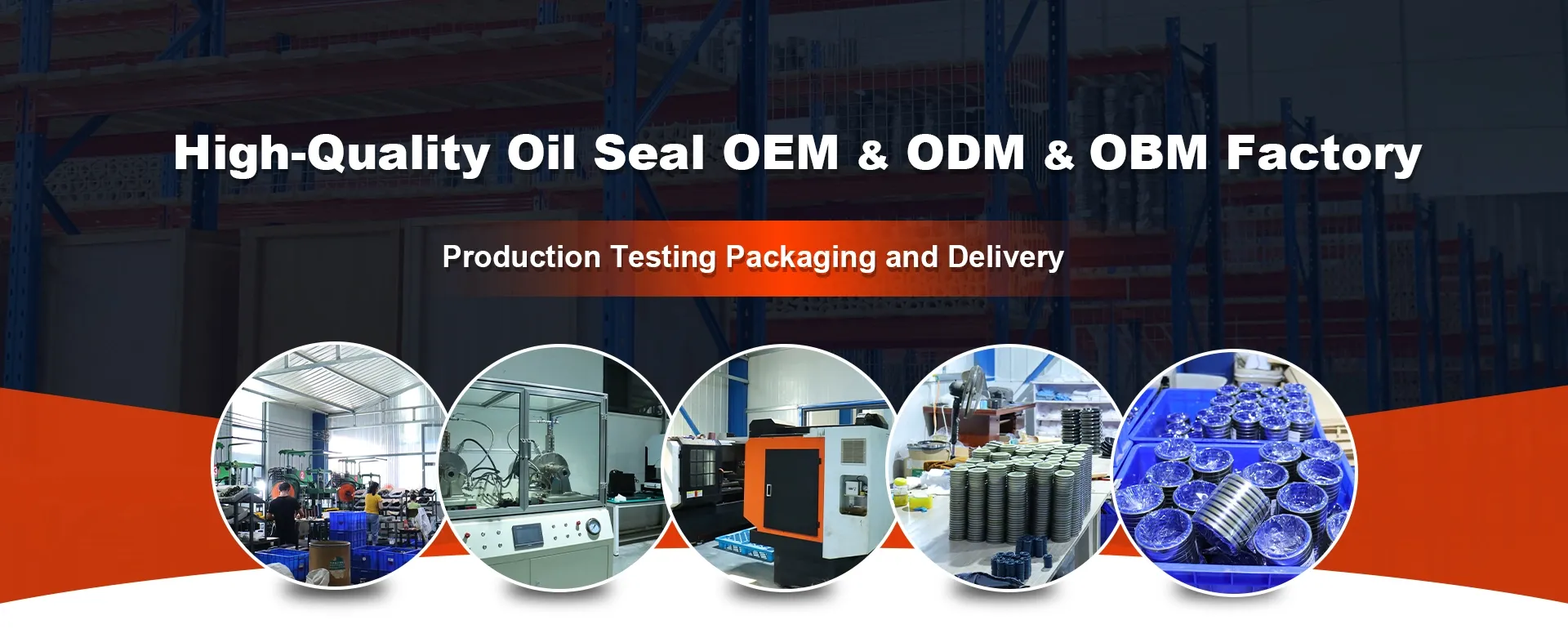Nov . 24, 2024 00:19 Back to list
Understanding the Importance of Hydraulic Oil Seals in Machine Performance and Longevity
Hydraulic Oil Seals Essential Components for Efficient Machinery Operation
In the realm of hydraulic machinery, oil seals play a critical role in ensuring smooth and effective operation. Hydraulic oil seals, specifically designed to prevent the leakage of hydraulic fluids, provide essential protection against contaminants, ensuring the longevity and reliability of hydraulic systems. This article explores the importance of hydraulic oil seals, their types, applications, and selection considerations.
Understanding Hydraulic Oil Seals
Hydraulic oil seals are mechanical components used to seal the interface between moving parts in hydraulic systems. They are designed to withstand high pressures and temperatures typically found in hydraulic applications. The primary function of these seals is to contain hydraulic fluids within the system while simultaneously preventing foreign particles, dust, and moisture from entering. This containment is vital because any contamination can lead to premature wear and failure of hydraulic components, resulting in costly repairs and downtime.
Types of Hydraulic Oil Seals
There are several types of hydraulic oil seals, each tailored for specific applications and operating conditions. The most common types include
1. U-Cup Seals Characterized by a U-shaped cross-section, U-cup seals are ideal for dynamic applications where there is reciprocating motion. They provide excellent sealing performance and are often used in hydraulic cylinders.
2. O-Rings These circular seals are versatile and commonly used in static and dynamic applications. They can accommodate a range of pressures and temperatures, making them suitable for various hydraulic systems.
3. Lip Seals Lip seals feature a flexible lip that creates a tight seal against the shaft. They are commonly used in rotary applications and provide effective sealing against high-pressure hydraulic fluids.
4. Flat Seals Often made from rubber or other elastomers, flat seals are used in applications where a flat sealing surface is required. They are frequently found in conjunction with flanges or other join components.
Applications of Hydraulic Oil Seals
Hydraulic oil seals are used in a wide range of industries and applications
hydraulic oil seal

- Construction Equipment Hydraulic systems in excavators, loaders, and cranes rely on oil seals to maintain efficiency and prevent fluid leaks, ensuring optimal performance in demanding environments.
- Automotive Heavy machinery vehicles and equipment, such as forklifts and dump trucks, utilize hydraulic oil seals for their hydraulic braking and steering systems.
- Manufacturing Hydraulic press machines and injection molding equipment depend on reliable sealing to avoid hydraulic fluid loss and maintain consistent operation.
- Aerospace and Marine In these sectors, hydraulic seals must endure extreme conditions. Oil seals are critical in hydraulic systems for landing gear and other flight control systems in aircraft, as well as in various marine propulsion and steering systems.
Selecting the Right Hydraulic Oil Seal
When selecting hydraulic oil seals, several factors must be considered to ensure optimal performance. These include
1. Material The choice of material affects the seal's durability, flexibility, and resistance to chemicals and temperature variations. Common materials include nitrile rubber, fluorocarbon, and polyurethane.
2. Size It is crucial to select oil seals that match the dimensions of the components they will be sealing. Proper sizing ensures a snug fit, minimizing the risk of leaks.
3. Operating Conditions Understanding the specific conditions under which the hydraulic system operates—including pressure, temperature, and fluid type—can guide the selection of the most appropriate seal type and material.
4. Installation Proper installation techniques are essential for maximizing the lifespan of hydraulic oil seals. Misalignment or improper fitting can lead to premature failure.
Conclusion
Hydraulic oil seals are integral to the functioning and longevity of hydraulic systems across various industries. By providing effective sealing solutions, these components help maintain fluid integrity, protect against contamination, and enhance overall system performance. Understanding the different types of hydraulic oil seals and their appropriate applications is vital for anyone involved in the design, maintenance, or operation of hydraulic machinery. With the right knowledge and selection, industries can ensure smoother operations and reduce the likelihood of costly breakdowns.
-
TCN Oil Seal Metal Ring Reinforcement for Heavy Machinery
NewsJul.25,2025
-
Rotary Lip Seal Spring-Loaded Design for High-Speed Applications
NewsJul.25,2025
-
Hydraulic Cylinder Seals Polyurethane Material for High-Impact Jobs
NewsJul.25,2025
-
High Pressure Oil Seal Polyurethane Coating Wear Resistance
NewsJul.25,2025
-
Dust Proof Seal Double Lip Design for Construction Equipment
NewsJul.25,2025
-
Hub Seal Polyurethane Wear Resistance in Agricultural Vehicles
NewsJul.25,2025
-
The Trans-formative Journey of Wheel Hub Oil Seals
NewsJun.06,2025
Products categories
















